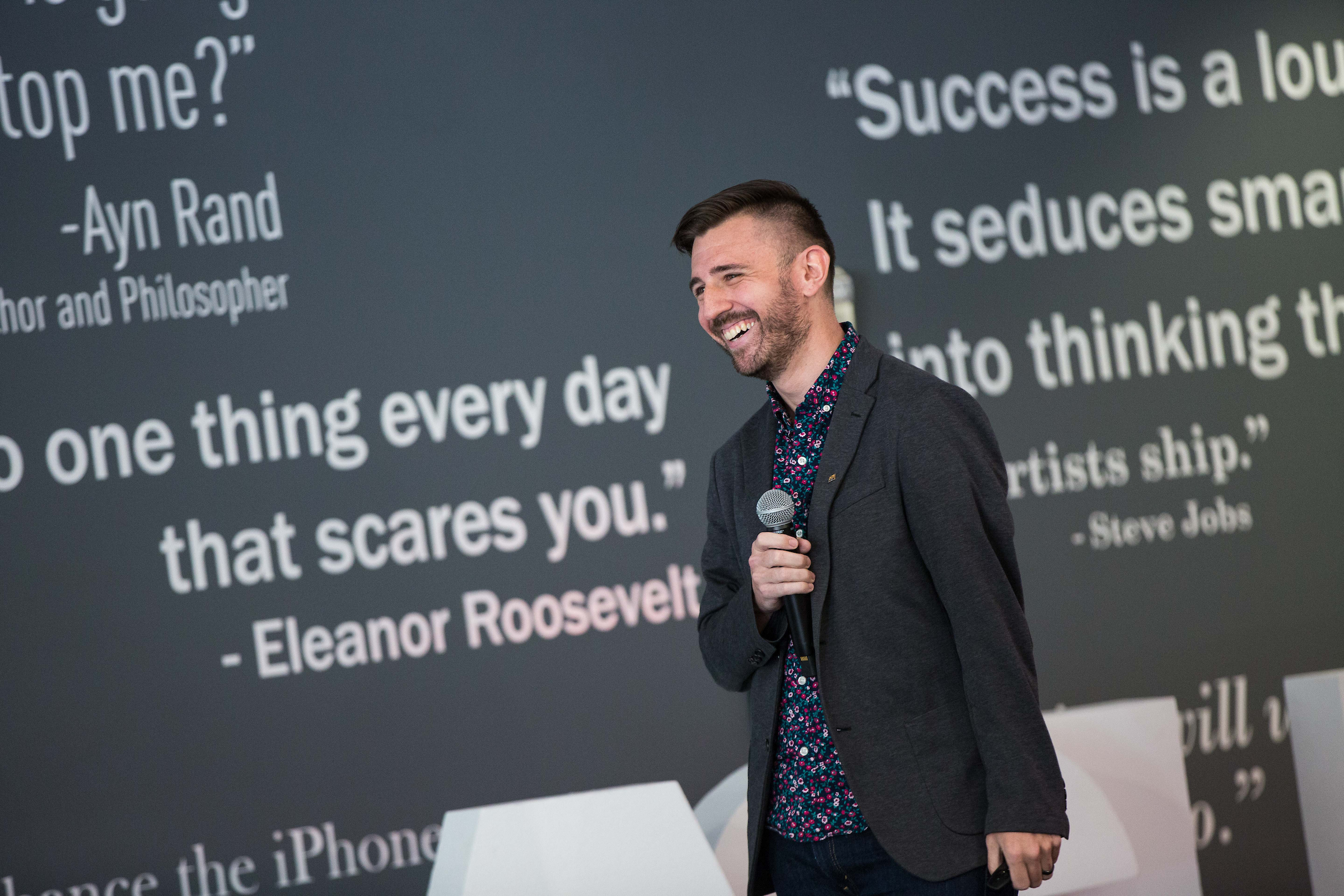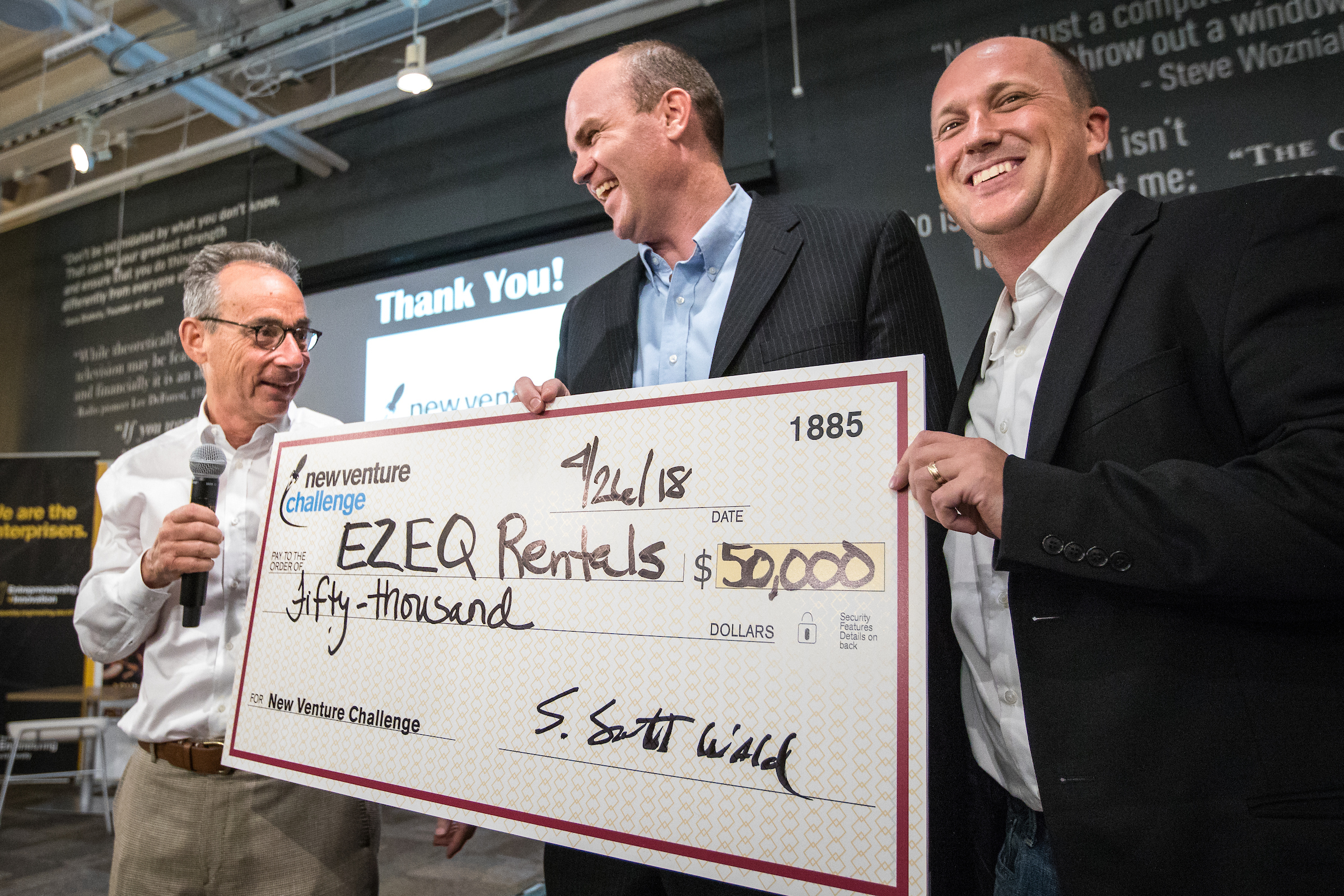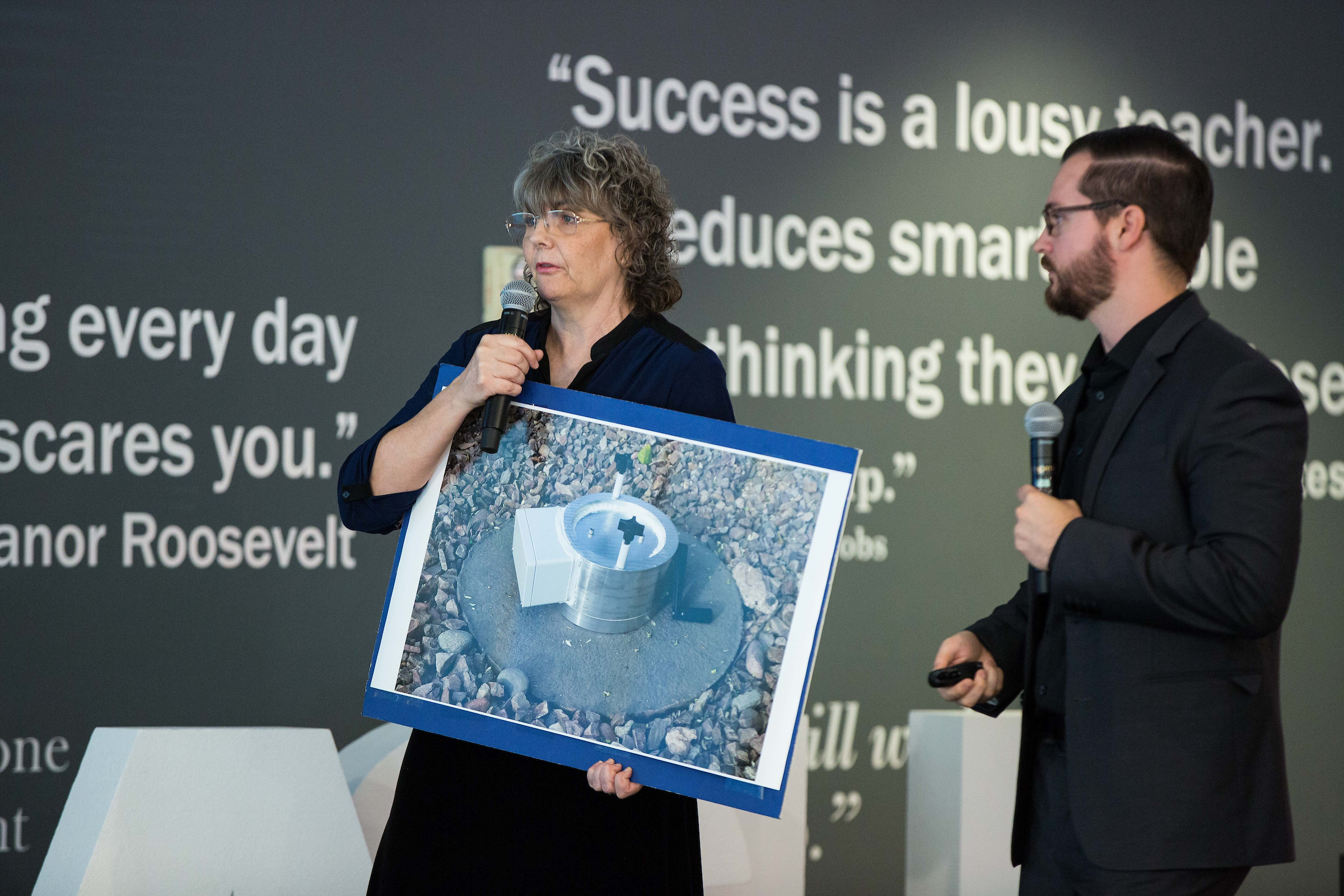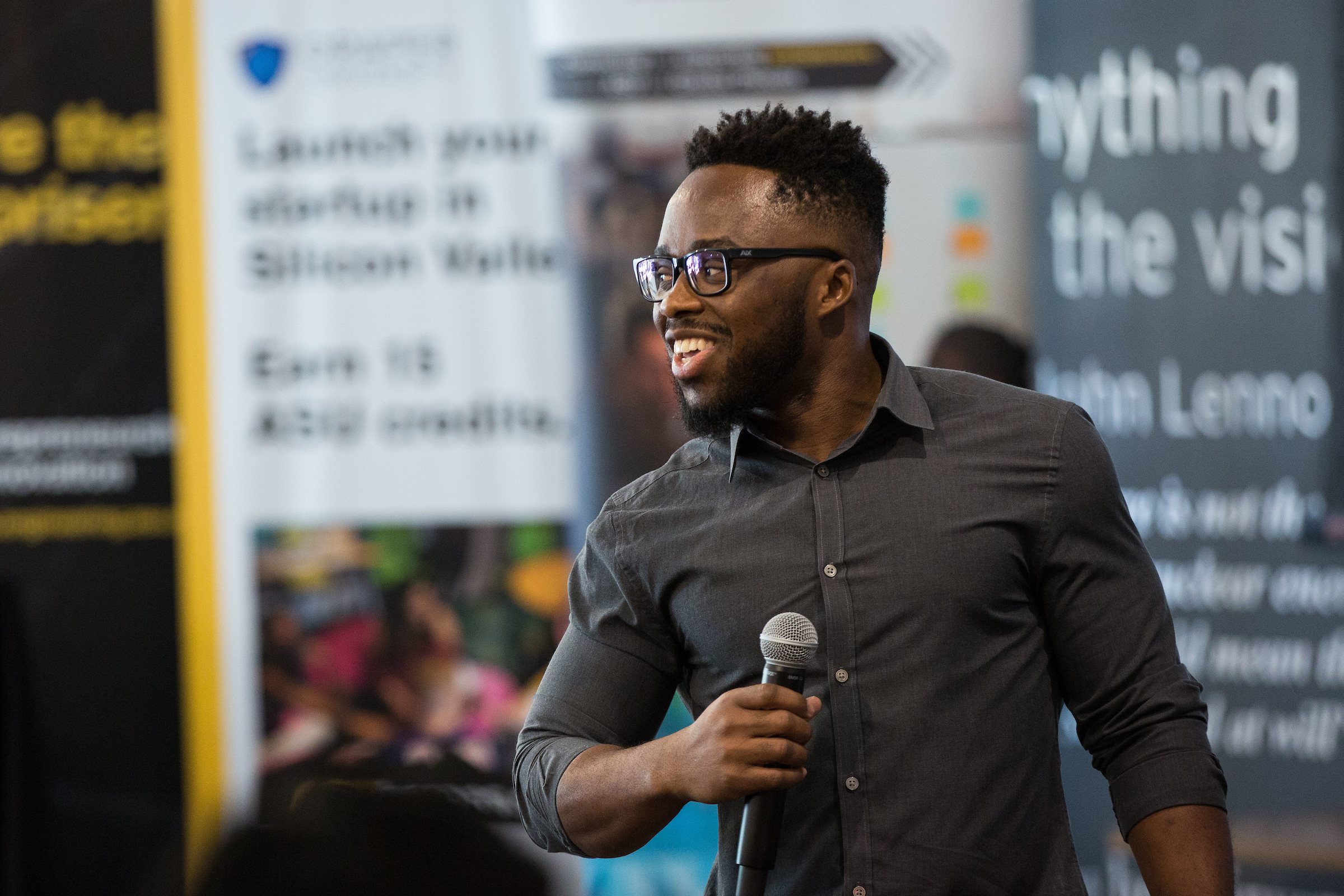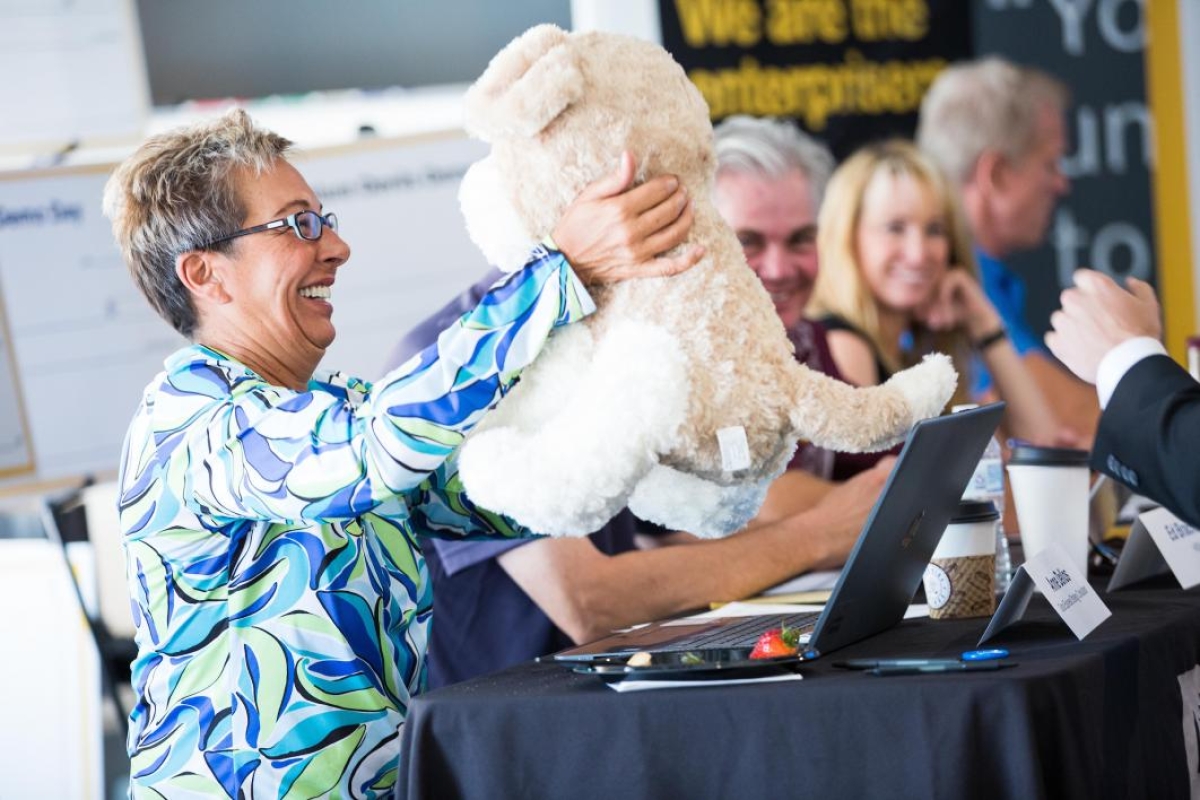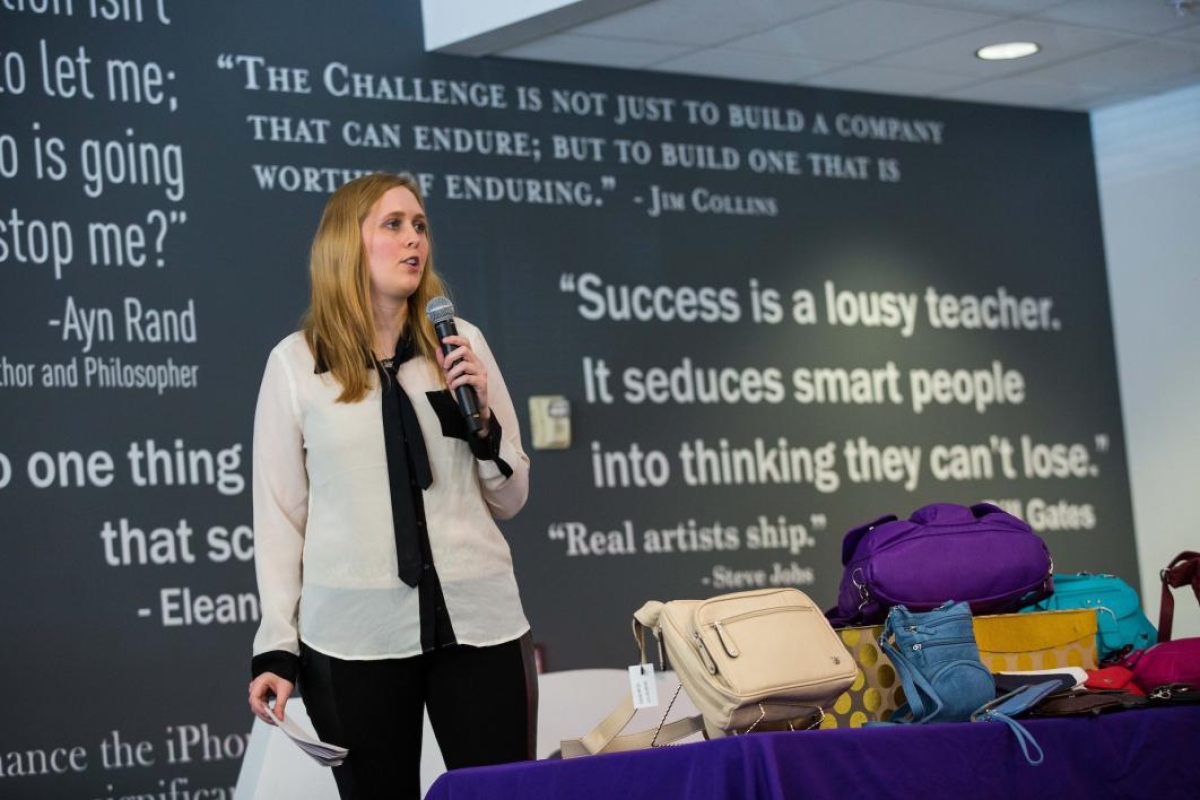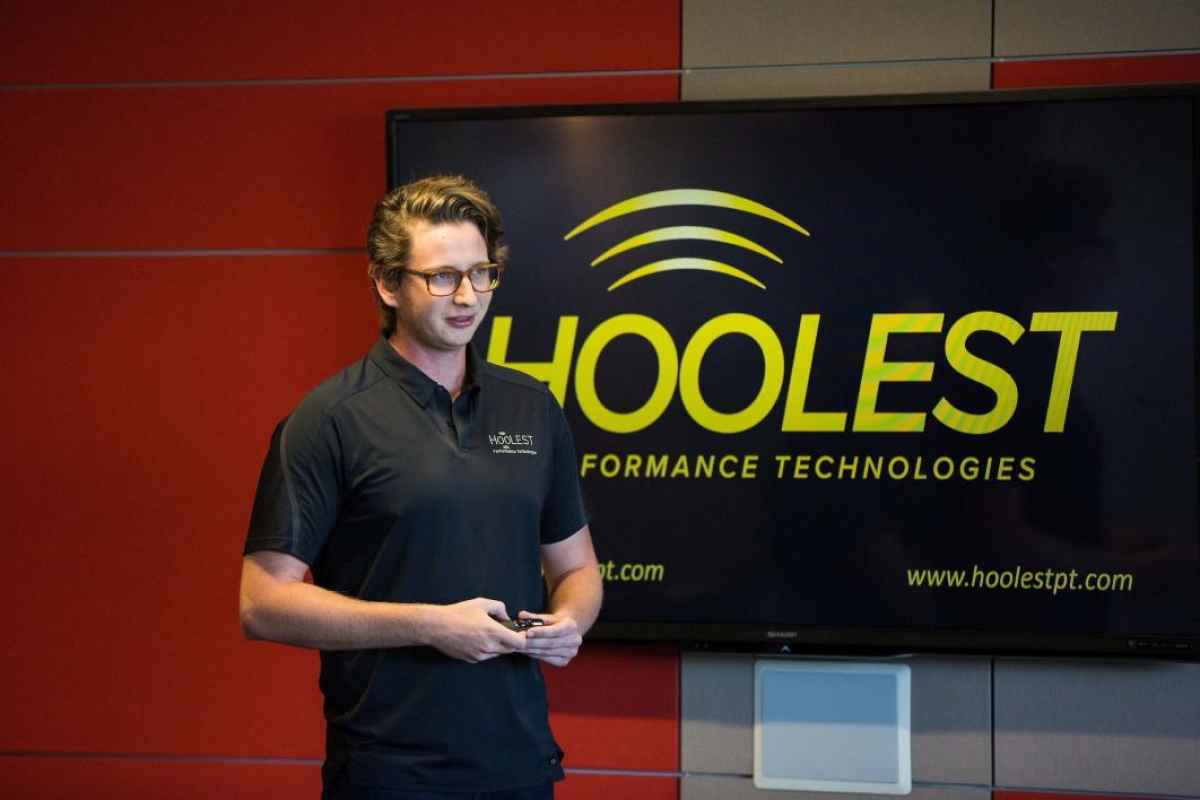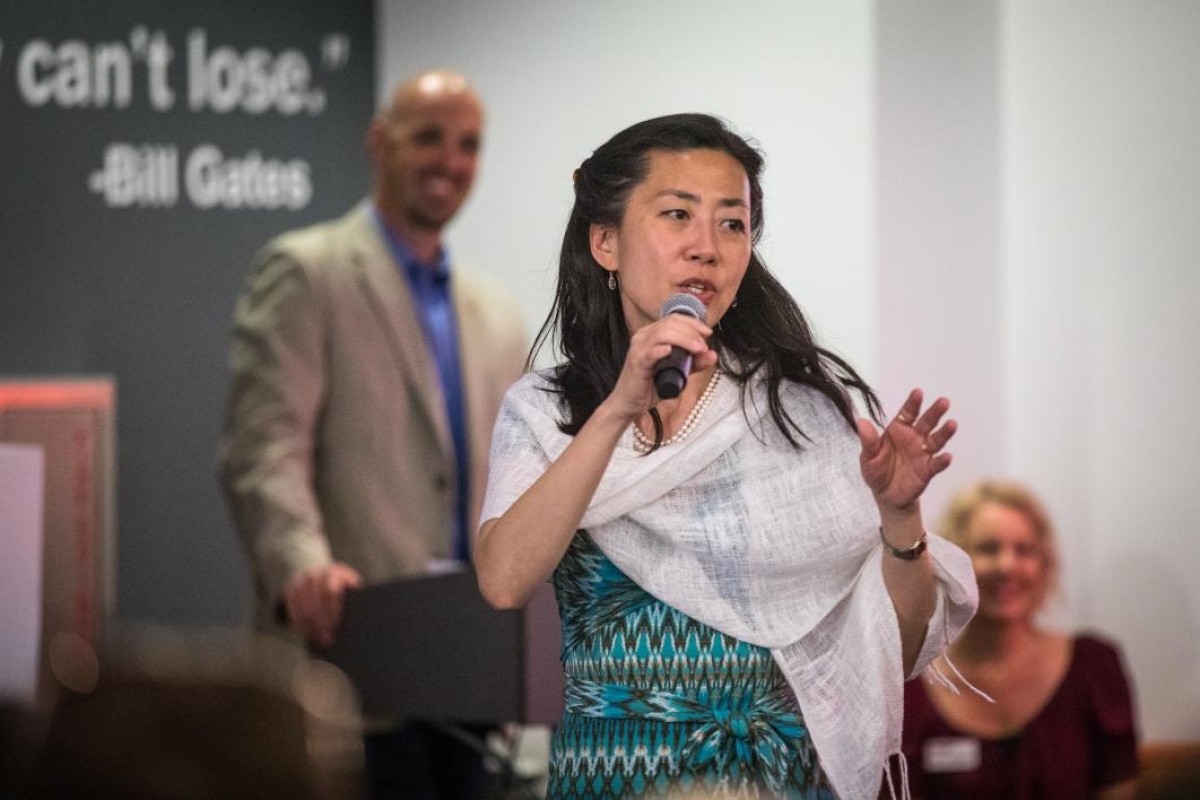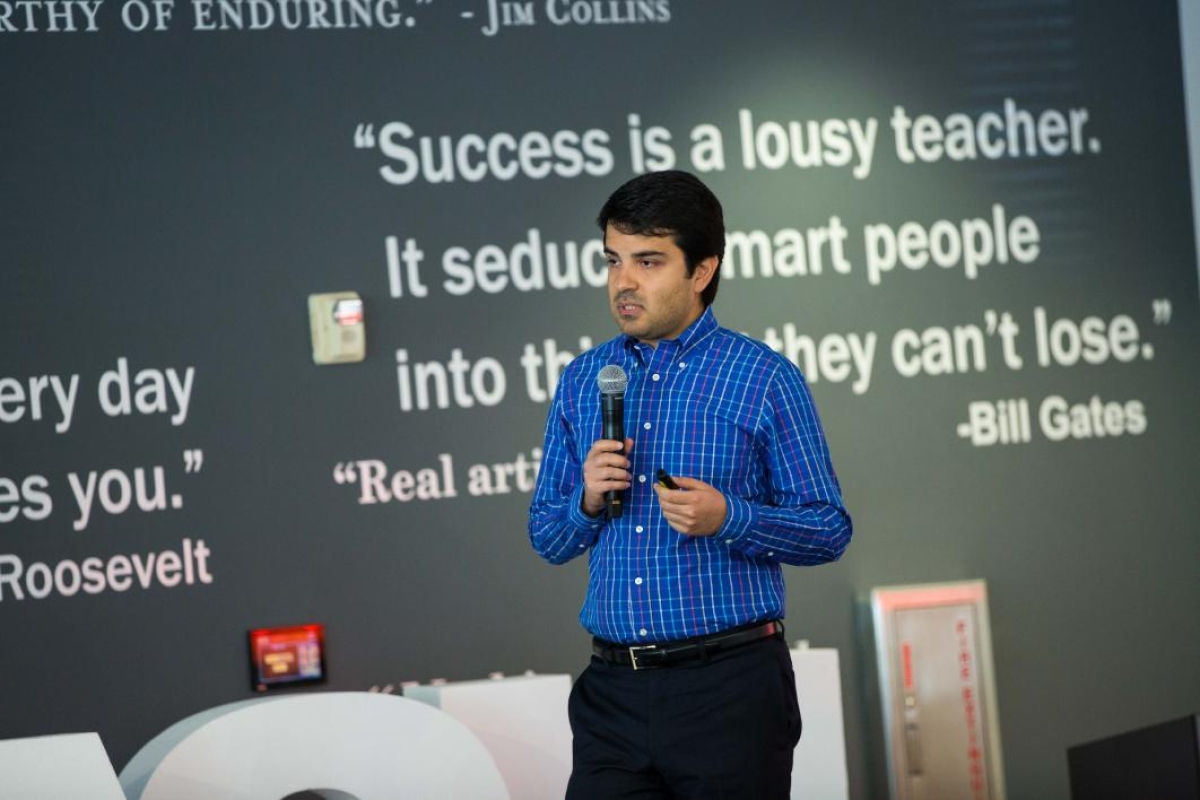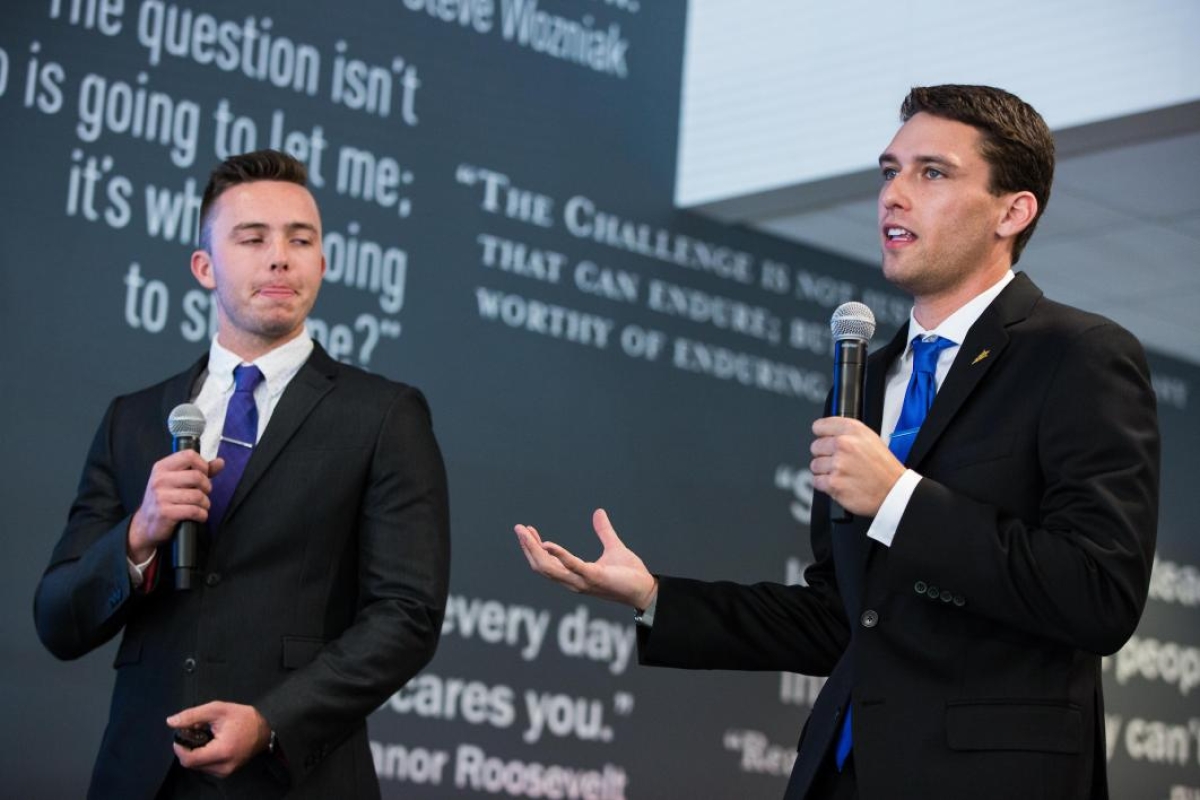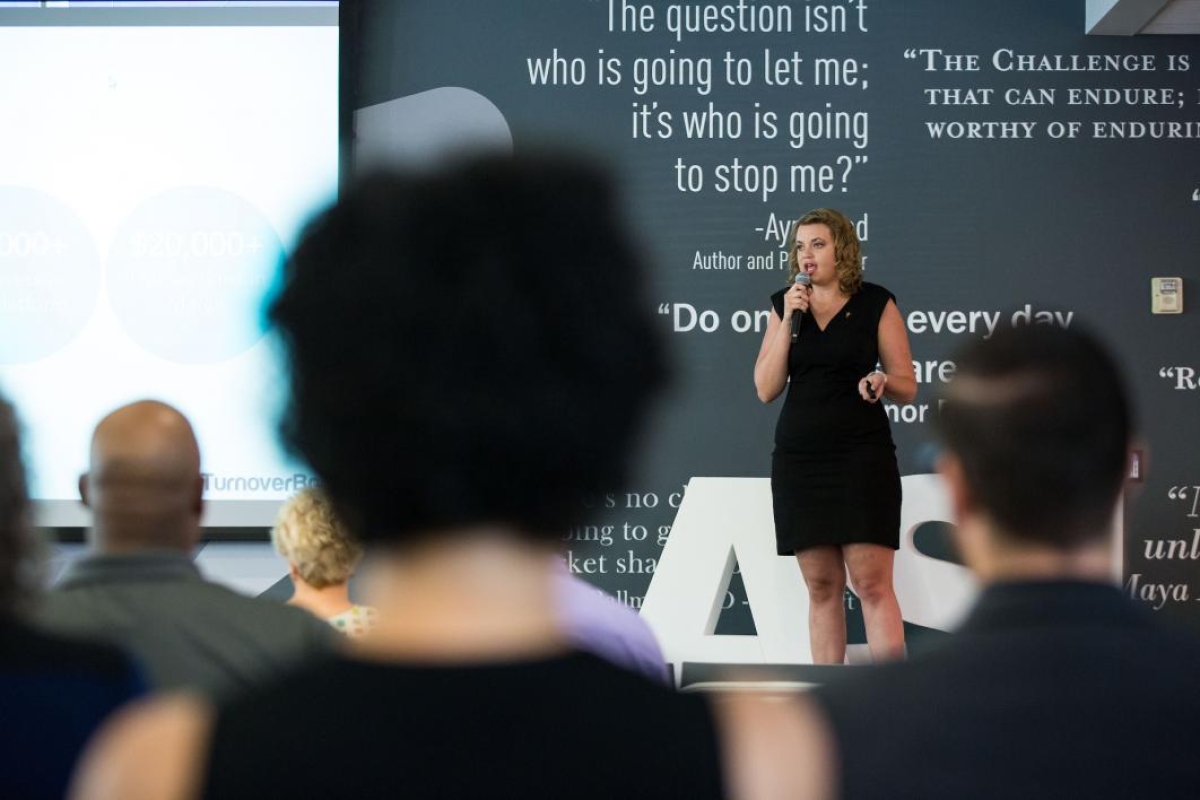Sometimes it takes only a little bit of money to nurture big dreams.
Nearly 100 teams of entrepreneurs pitched their projects during Demo Days last week, hoping to get a few thousand dollars to advance their projects.
In all, more than $300,000 in cash and services was awarded to dozens of teams in Venture Devils, a program in the office of Entrepreneurship + Innovation at Arizona State University that provides space, mentorship and access to funding to entrepreneurs who are ASU students, faculty, alumni or community members. The event combined eight funding competitions.
Some ventures were highly technical and will need hundreds of thousands of dollars to eventually get off the ground, like an automated waste-sorting machine, while others solve smaller-scale problems, like a $12 plug that will keep hair from clogging pipes, invented by two long-haired siblings.
The waste-sorting project, called Hygiea, won $2,000 from the Pakis Social Venture Challenge, and the siblings, Holly Hillsten and Justin Hillsten, won $8,500 for DrainFunnel in the Edson Student Entrepreneur Initiative. Both are undergraduates in the W. P. Carey School of Business.
Many of the teams that won the largest amounts of funding have been working for years on their projects. Ryan Stoll, co-founder of Compass for Courage, won $20,000 in the Pakis Social Entrepreneurship Challenge. He has been working for seven years on the project as part of his PhD training. Compass for Courage makes an interactive curriculum for children that uses board games to help them learn skills to overcome anxiety. The program is already used in 26 Arizona schools.
Ryan Stoll presents his venture, Compass for Courage, during the Pakis Social Entrepreneurship Challenge at Demo Days at Skysong on Friday. Photo by Deanna Dent/ASU Now
Hoolest Performance Technologies, made up of three students, has won several funding competitions since it was founded less than two years ago. On Friday, Hoolest won in two categories: A $12,500 prize from the Edson Student Entrepreneurship competition and a trip to the Portland, Oregon, headquarters of adidas for mentoring, from the Global Sport Venture Challenge contest.
The venture, which makes earbud devices that block stress by stimulating the vagus nerve, has won more than $110,000 in two competitions in the past year. The idea was launched by Nicholas Hool, a biomedical engineering PhD student who suffered from performance anxiety while he was a nationally competitive golfer in high school. He said the device, now being tested in professional athletes, could eventually be used to help people manage symptoms of opioid withdrawal.
(From left) ASU alumnus and entrepreneurship class instructor Scott Wald gives a $50,000 award to Tanner Tryon and Danny Pickett of EZEQ Rentals at the New Venture Challenge on Thursday at SkySong. Photo by Charlie Leight/ASU Now
Some of the winners already have a lot of experience. EZEQ Rentals is owned by two men who have been in the business world for many years and took a graduate-level class in the W. P. Carey School of Business in entrepreneurship this spring. They won the grand prize of $50,000 in the New Venture Challenge, a class taught by Scott Wald, a software entrepreneur who earned an MBA from ASU.
“I’ve worked for the third-largest equipment rental in the world, and we had 10 sales reps who would drive around the Valley delivering boxes of donuts trying to drum up business,” said Tanner Tryon, whose business, which he co-owns with Thunderbird School of Global Management Executive MBA student Danny Pickett, is an online marketplace for equipment rental. “Our employees would spend hours each week looking up quotes, all of which could be done on our marketplace.”
Ann Grimes, who will earn her undergraduate degree in mechanical engineering in May, co-founded Engineering Design Innovations, which invented a device that allows homeowners to control the timing of flood irrigation of their yards through a phone app. She has owned an engineering company with her husband for more than 20 years and has lived in a home with flood irrigation for 27 years.
“It’s inconvenient and outdated and there’s a better way,” said Grimes, who won $8,500 with her co-founder, Christian Coleman, who also is earning his bachelor’s degree in mechanical engineering.
Ann Grimes and Christian Coleman, who will both earn their bachelor's degrees in mechanical engineering in May, present their business plan for an automated valve that lets homeowners control flood irrigation. Photo by Deanna Dent/ASU Now
Among the other ventures that won cash:
HumanityX, which created a platform called Ark Humanity that uses social media to triage cases of suicide ideation and connect people identified as being at risk with trained counselors, won $5,000 in the Pakis Social Entrepreneurship Challenge. The team includes ASU undergraduate and graduate students.
AirGarage, an online marketplace founded by undergraduates Scott Fitsimones and Jonathon Barkl that allows homeowners and businesses to rent parking spaces to people looking for affordable parking near ASU, won $12,000 from the Edson Student Entrepreneurship Initiative.
Purse King, a venture owned by an ASU student and alumni, won $5,000 to fund its line of purses made of synthetic, plant-based materials, with several models designed for women who carry concealed handguns. “Just because you conceal and carry doesn’t mean you don’t love animals,” said co-founder Jessica Knab, who earned an MBA from ASU.
The TrueUnion Project won $8,500 to develop its online platform that offers a short list of wedding vendors for couples who don’t want to wade through the thousands of photographers, florists, caterers and other providers. It’s co-founded by photographers Murphy McGary and Keegan Carlson, who are MBA students.
Garden of Eden won $5,000 for its aeroponic system that grows vegetables year-round on vertical towers, using 90 percent less water and land than conventional growing. The urban farm was founded by Yann Raymond, a senior in sustainability.
While $1,000 might not seem like a lot, that was the funding goal of the Shonto Mountain Bike Initiative — and they got it. The venture is part of Engineering Projects in Community Service in the Ira A. Fulton Schools of Engineering, known as EPICS.
The goal is to create recreational and business opportunities in the Shonto community on the Navajo reservation three ways: help the residents develop a 12-mile mountain bike trail to promote ecotourism, launch a mountain-bike team in the schools and create a pump track, which is like a skate park for mountain bikes.
Alyssa Carlson, a sophomore majoring in chemical engineering, said that the EPICS project is partnering with ASU Surplus to acquire bikes for the Shonto youths.
“Everything will go to getting bikes and helmets and pads. We get bikes for $20 each, so that means like 50 bikes, which is awesome,” Carlson said. “We already have 41 bikes so we’ll be able to get bikes to all the kids who want one.”
Dornubari Vizor, co-founder of the web-development company Yazamo and an alumnus of ASU, described how he grew his company over six years to be worth more than $1 million. Photo by Deanna Dent/ASU Now
Even when ventures start to get off the ground as businesses, the money can come in small amounts. Dornubari Vizor, co-founder of the web-development company Yazamo, is an alumnus of ASU and the Edson program. He gave a keynote talk describing how he grew his company over six years to be worth more than $1 million.
First, he showed a photo of himself sitting on the floor in a tiny, cluttered room.
“I’m eating a bowl of rice, and it’s probably my seventh bowl of rice that day because that’s all I had to eat,” he said.
But he told the budding entrepreneurs at Demo Day that it’s important for them to take a salary from their ventures.
“I would get grants and be like, ‘I’m putting all of this into my business,’ ” he said. Until a mentor set him straight.
“He told me, ‘It doesn’t matter if you’re making $250 a month when you’re starting out. Pay yourself $20 so you reward yourself for your hard work and you can see the business as a source of income.’
“You’re the first employee and you deserve a livable wage.”
Learn more about ASU Venture Devils.
Top photo: Sparky congratulates one of the winning team at the Demo Day pitch competition on Friday at SkySong. Photo by Deanna Dent/ASU Now
More Business and entrepreneurship

Honoring 2 decades of entrepreneurial impact on a global scale
Thunderbird for Good, the impact-driven initiative of Thunderbird School of Global Management at Arizona State University, is marking two decades of educational programs and initiatives dedicated to…

ASU and GoDaddy launch Student Athlete Venture Studio
In a groundbreaking initiative aimed at empowering college athletes beyond their playing careers, Arizona State University and GoDaddy teamed up to launch the first-of-its-kind Student Athlete…

Boosting entrepreneurship to meet the market's needs
America loves an entrepreneur — the home run king of all businesspeople.And at Arizona State University, we love them, too.Here’s a look at how ASU prepares business students, alumni, development…



